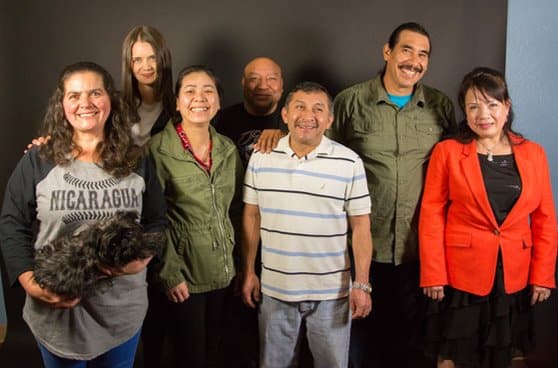Expanding digital literacy while learning English
March 4, 2021

Since shelter in place was issued in Marin in March 2020, Canal Alliance’s Education team has been working diligently to address the digital divide for students in our youth and adult education programs. In August 2020, as part of an organization-wide commitment to offering all programs remotely during the pandemic, Canal Alliance launched an online pilot of our adult English as a Second Language (ESL) program. The goals of the pilot program were to understand how students operate in an online learning environment in light of the vast digital divide that exists for residents of the Canal neighborhood, and for staff to use the results of this pilot project to inform future sessions and meet the learning and technology access needs of students.
Prior to the launch of the pilot program, Education staff members administered a survey that provided detailed information about the extent of the gap in access to computer technology and the internet and rates of digital literacy that exists for low-income residents of the Canal neighborhood.
For the 15-week online pilot of the ESL Program in Fall 2020, Canal Alliance offered seven ESL classes, at levels ranging from beginner to advanced. Classes were taught by six teachers and assisted by 65 aides, and 108 students enrolled; of those, 63% remained enrolled throughout the entire course. This represents less than half the capacity of in-person classes, and reflects the many challenges that were encountered when transitioning to online learning.
According to Kate Rider, ESL Supervisor, most of the challenges encountered pertained to students’ inability to access technology and the internet. She said, “The students who persevered gained a lot of tech skills over the course of the trimester.” Another challenge for many students was lack of an internet connection. To address this problem, the ESL program staff has begun working with students one-on-one to help them apply for low-cost internet, set up their mobile phone for use as a wifi hot spot, or connect to the Canal Free Wi-Fi, a mesh network in the Canal neighborhood.
The program also had to make other changes to accommodate and support student learning. The volunteer role of aide became more important during the trimester. According to Kate, aides usually assist in the classroom with a teacher nearby to support, but in the online environment they are leading break-out sessions on their own in small groups over Zoom. While this required more training, it also led to a new kind of connection with students. One benefit of the online format is that the ESL Program was able to utilize aides who don’t live locally, and students benefitted from the varied expertise these new volunteers provided.
Students also showed their commitment to learning English in many ways, and remote learning supported their efforts. One student never missed a class which occurred four days per week from 8 to 10 pm, despite waking up at 3:30 am for work. Another student, bedridden with COVID-19 and having internet connectivity issues, surprised her teacher and classmates by attending class on her phone.
Like the Fall trimester, the current trimester is also only being offered online. Based on their experience last fall, ESL staff have “taken a quantum leap” in knowing how to better organize online learning. According to Kate, there are fewer tech challenges for both students and staff. This stems largely from the fact that all ESL students have now been given a device if they didn’t already have a computer or tablet of their own. The devices provided to students were purchased by funds raised from individual contributors to our Digital Equity Fund, and from refurbished devices donated by Marin Academy. Before devices were distributed to students, staff pre-loaded them with applications like Zoom and bookmarked important websites, such as those with COVID-19 testing information. Staff have also made themselves available to provide tech support and answer students’ questions.
According to Kate, the online ESL pilot trimester was a steep learning curve for staff, students, teachers, and aides. Despite the challenges, there were unexpected benefits, such as the new technology skills that many students gained. “There are students in our community who have never used this technology before or learned in this way,” said Air Gallegos, Director of Education and Career. “We’ve put a lot of intentionality into doing the digital literacy work to make sure we are empowering students to use the technology on their own beyond the classroom. We are lifting people out of poverty and bridging the privilege barriers that have been exacerbated by the COVID-19 pandemic.”
Students in our ESL Program have been among those hit hardest by the health and economic impacts of the pandemic. Learning English skills is vital to their success in breaking the generational cycle of poverty. Those who have been able to sustain employment are often essential workers or on the front lines. It is imperative for them to be able to communicate and use technology, from making an appointment for COVID-19 testing, to applying for rental assistance, to having a virtual visit with a doctor.
Prior to COVID-19, approximately 300 students per trimester were enrolled in ESL classes and there was a waiting list of potential students. According to Air, the number of students we serve has been severely reduced, due to the new online format. Through the online pilot program, staff have determined what areas of online learning work for students and they hope to grow the ESL Program based on what was learned. “Our students need digital literacy as much as they need to learn English, so growth in a direction that has both of those components is necessary,” said Air. “We remain hopeful that the adult ESL Program’s growth will include fulfilling the need for such a program in the community while also continuing to meet the unique needs of our students.”